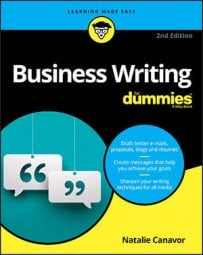Puzzling out this challenge empowers you speak well for yourself at interviews. It puts you in a better position to target the right jobs because you can recognize the most promising opportunities. It also helps you strategize your online presence to back up how you present yourself. And these days, you can't always anticipate when it's time to find a new perch. Your supervisor many change, company priorities may shift, budgets may be cut. Having a ready resume in your pocket is a big advantage.
Here are some specific ways to sharpen your resume and bring it alive.
- Ask yourself, "Does my resume qualify me for another job just like the one I have — or the one I want?" Picture your ideal next step in as much detail as you can. Then think: What have I done so far that perfectly equips me for that job? Consider your experience, positions to date, accomplishments, skills, any special qualifications in that context. You need to know why you deserve the job to that to someone else. Write a three- to five-line Summary of Experience based on this thinking to introduce yourself at the top of the resume. Give yourself a generalized job title that relates closely to your target, but honestly interprets your experience. Write the summary in narrative form — that is, not with bullets.
- Use the rest of the resume to back up this introduction. Begin each previous job description with a few lines of narrative that provide readers with an easy-to-grasp idea of the most important and relevant work you performed. Follow this with bullets that highlight specific results and achievements, in order of relevance to the job you want.
- Translate responsibilities into accomplishments. Completely eliminate the words, "responsible for." This is tough, but doing so gives you much better results. Thinking about projects you handled can help, because they often seek to solve a problem and deliver tangible results. Then, rather than, "Responsible for leading team to develop new purchasing guidelines," try for something more like, "Led task force to plan new company-wide purchasing system." Better yet, add "which reduced expenses 3 percent within three months of implementation." Or provide anecdotal evidence if you can't quantify: "Recognized as employee of the month for this result."
- Make your job descriptions as concrete as possible. Rather than relying on vague generalizations, industry jargon, or business-speak, figure out what you actually do that's important and even unique. Which is better: "Create cutting-edge solutions to managing virtual collaboration channels," or "Customize communication software that keeps virtual teams coordinated through user-friendly, time-saving systems"?
- Watch your words. Build with short, everyday words and action verbs throughout — to find the latter, just Google "action verbs for resumes." Infinite possibilities come up. Do your homework on search terms, too, drawing on the language of the job positing and some research into the industry. This may lead you to use some of that business-speak I warned you against, but machines and skimming readers need to see them — so balance their presence with concrete language. And finally, edit and proofread obsessively. In a world where you face dozens or hundreds of competitors for every chance, correctness is credibility. Don't risk losing what you want because of a single spelling error.

